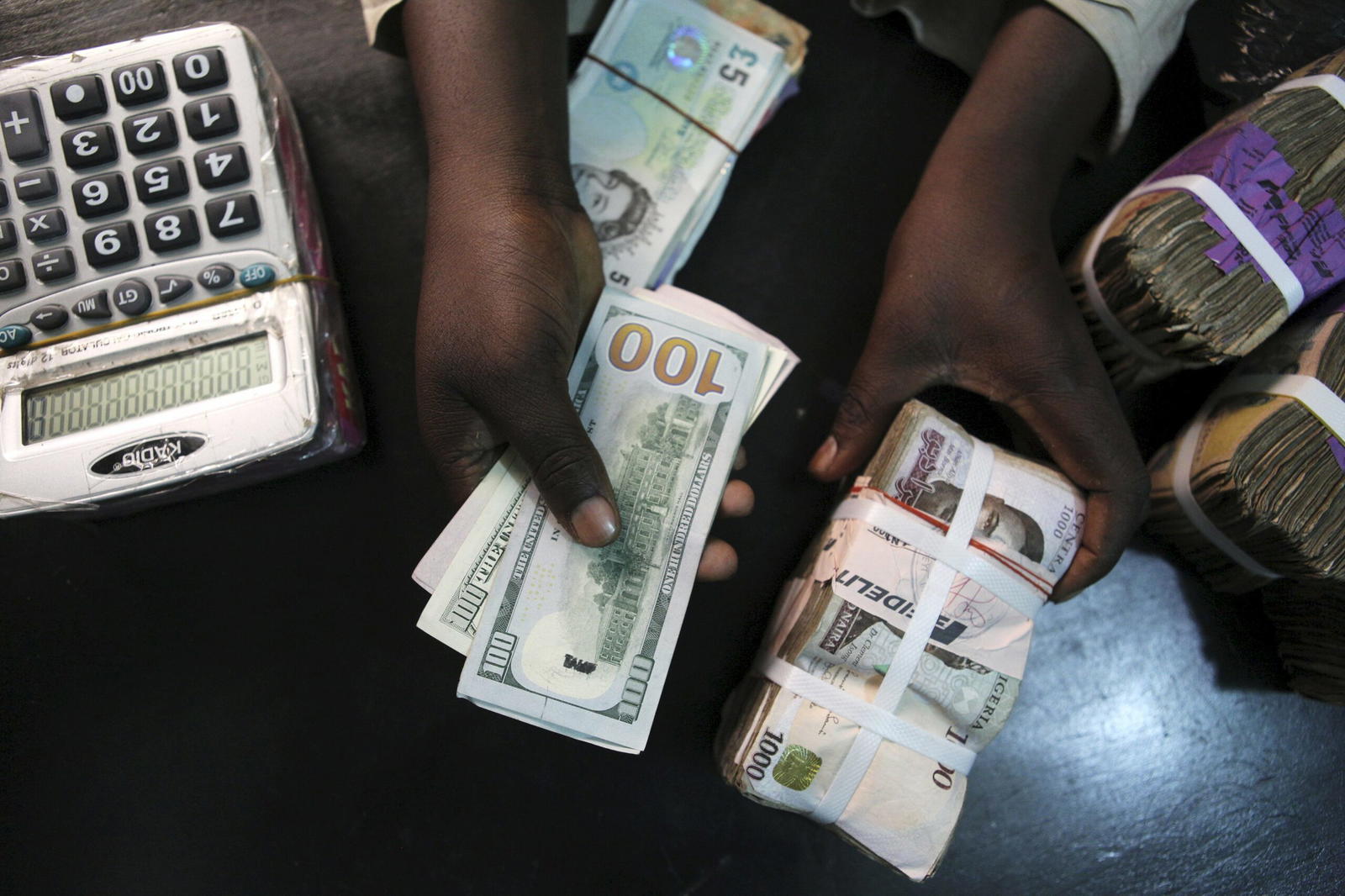Business
Manufacturers’ forex losses rise 566% to N792bn
March 25, 2024
February 1, 2024
Nigeria has implemented its second currency devaluation in eight months to address exchange rate complexities and attract investment to its struggling economy. The naira's recent depreciation, resulting from changes in the official exchange rate calculation, aligns it more closely with the black market rate.
The move is part of market-friendly reforms led by President Bola Tinubu, who abandoned the long-standing peg that had artificially elevated the currency. Despite this shift, Nigeria maintained an official rate significantly higher than the freely-traded rate, deterring multinational investment.
Charlie Robertson, Head of Macro Strategy at FIM Partners, believes the new methodology, by abolishing multiple exchange rates, could enhance Nigeria's appeal to investors and increase dollar circulation in the country.
FMDQ Group, responsible for calculating Nigeria's official exchange rate, revised its methodology to address recent challenges in the volatile foreign exchange market. The new system, aimed at reflecting market conditions accurately while ensuring transparency, was introduced this week.
The naira's value dropped nearly 40% to 1482.57 against the dollar on the official market, reaching 1,531 on Wednesday. This adjustment brings the official rate closer to the N1,475 level observed in the black market.
Nigeria's central bank criticized authorized dealers for providing inaccurate information on transaction rates, leading to distortions in the official market. The bank warned against market manipulation and unethical practices, promising sanctions for offenders.
Since the removal of the currency peg, the naira has faced challenges, with a lack of foreign exchange liquidity hindering planned reforms. The central bank has outstanding forward contracts amounting to about $5 billion, creating a backlog that needs resolution. FIM's Robertson suggests resolving this backlog and raising short-term interest rates to attract portfolio investors.
The central bank, under Governor Olayemi Cardoso, aims to settle the backlog promptly and address fundamental issues affecting the Nigerian foreign-exchange markets. However, sources of dollar inflows remain scarce, and the country grapples with a significant decline in investment and below-target crude oil production.
Despite having $32.87 billion in foreign exchange reserves, a substantial portion is committed to settling derivatives deals, limiting the available funds for other purposes. Nigeria faces ongoing economic challenges, and the success of its reforms will depend on addressing various issues, including the backlog of contracts and boosting investor confidence.
Investors remain wary of bringing hard currency into the country as dollar shortages have made it difficult for businesses to repatriate revenues to their home countries.
Foreign airlines operating in Nigeria last month threatened to strike over their inability to get money out of the country. Dubai-based carrier Emirates suspended its flights to and from Nigeria in 2022 and has yet to return. Nigeria said this week it released $64.4mn of trapped airline funds but the International Air Transport Association said there was still $700mn left to be paid out.
Finance minister Wale Edun said in Davos last month that Nigeria is seeking about $1.5bn from the World Bank to ease liquidity concerns. Last year he said the country had a “line of sight” on $10bn in inflows in the country but that has yet to materialise. A scheme that saw the state oil company pledge oil in exchange for dollars from the African Export-Import Bank (Afrexim) netted Nigeria $3bn last month.
A senior western diplomat whose country has companies operating in Nigeria told the Financial Times that businesses remain unconvinced by the government’s announcements of potential dollar inflows to ease the pervasive hard currency shortages.
On a visit to Nigeria last week, US secretary of state Antony Blinken mentioned that the inability to repatriate capital was an “impediment” to American investors maximising opportunities in Nigeria.
Source: Financial Times
Image: BLOOMBERG